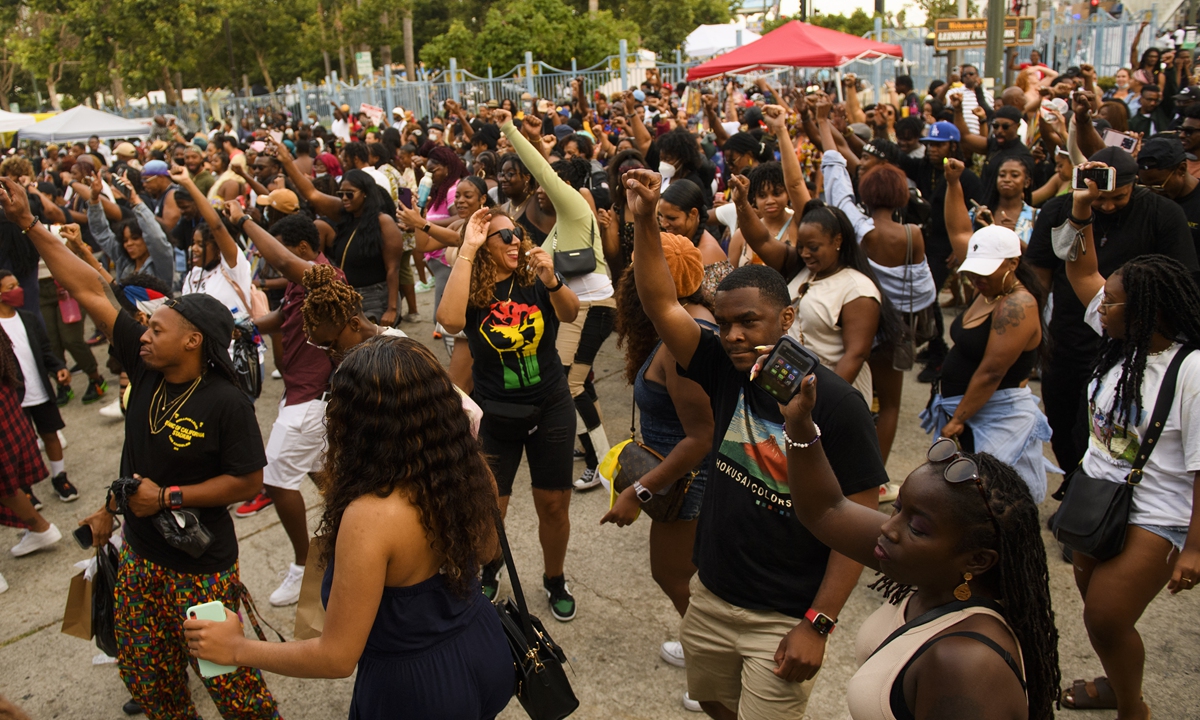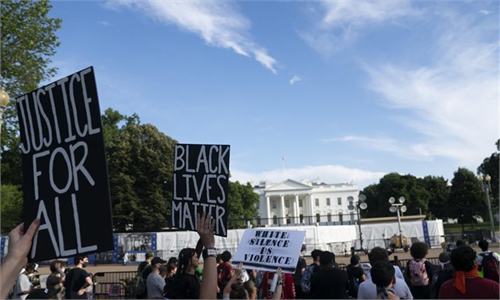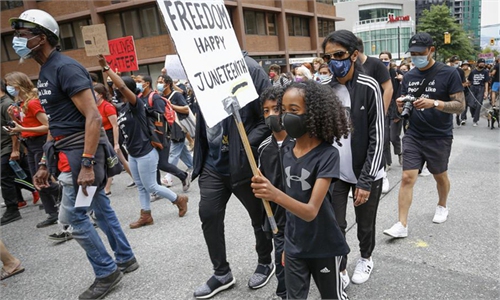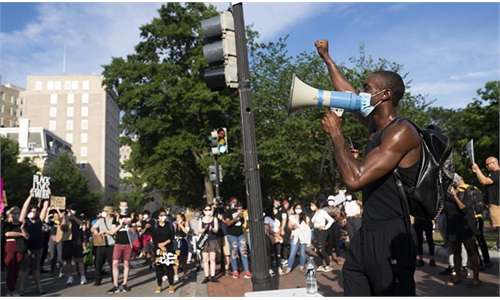US marks slavery’s end on ‘Juneteenth’
Poison of racism ‘still very much embedded in the DNA of this country’

People dance during the Leimert Park Rising Juneteenth celebration on Saturday in Los Angeles, California. Photo: AFP
With marches, music and speeches, Americans on Saturday celebrated "Juneteenth," the newly declared national holiday that marks the end of slavery and which comes a year after George Floyd's murder sparked anti-racism protests.Hundreds of events were held across the country, from New York to Los Angeles, and most notably in Galveston, Texas, the symbolic heart of the Juneteenth commemoration.
For on June 19, 1865, it was in that Texas coastal area that the Union army - victorious after the bitterly fought Civil War - announced to African-Americans that, even if some in Texas were trying to ignore it, enslaved people were now free.
Slavery was formally abolished in December 1865, with the adoption of the 13th amendment to the US Constitution, but Juneteenth has remained the emblematic date marking the freeing of enslaved Americans.
This year's Juneteenth celebrations are all the more celebratory, coming just days after President Joe Biden signed legislation making June 19 a national holiday, and at a time when pandemic-imposed restrictions on public gatherings are steadily being eased.
"I feel wonderful, I feel proud, I feel a sense of accomplishment for the struggle," Sharonda Newby said at a rally in Galveston, where she grew up. "I feel like they've given us some momentum, some resilience to continue to push forward."
"It was a long time coming," said 68-year-old Cheryl Green, who was attending the unveiling in the New York City borough of Brooklyn of a bust of Floyd, the black man killed by a white policeman in Minneapolis in May 2020.
"It's good that people get to recognize what happened," said Green, an African-American resident of Brooklyn's Flatbush neighborhood. "Changes are being made slowly, but surely we'll get there."
In Washington, hundreds celebrated on Black Lives Matter Plaza, a section of a main road near the White House that was renamed by the city amid the huge anti-racism protests galvanized by Floyd's death.
Kevin Blanks, a 29-year-old black man, said he had come to denounce the racism that is "still very much embedded in the DNA of this country."
He wore a T-shirt that paid tribute to Black leaders Martin Luther King Jr, Malcolm X and Harriet Tubman.
Danique McGuire, a 51-year-old black woman, said that by signing the Juneteenth legislation into law, "President Biden has recognized the importance of black Americans."
She added, however, that "the fight is still long" for equality.
Floyd's killing touched off global protests against racism and police violence toward minorities.
That movement helped raise the visibility of Juneteenth - a date that many Americans, including many African-Americans, had not heard of even two years ago. An opinion survey published Tuesday by the Gallup institute found that 28 percent of Americans knew "nothing at all" about the anniversary.



